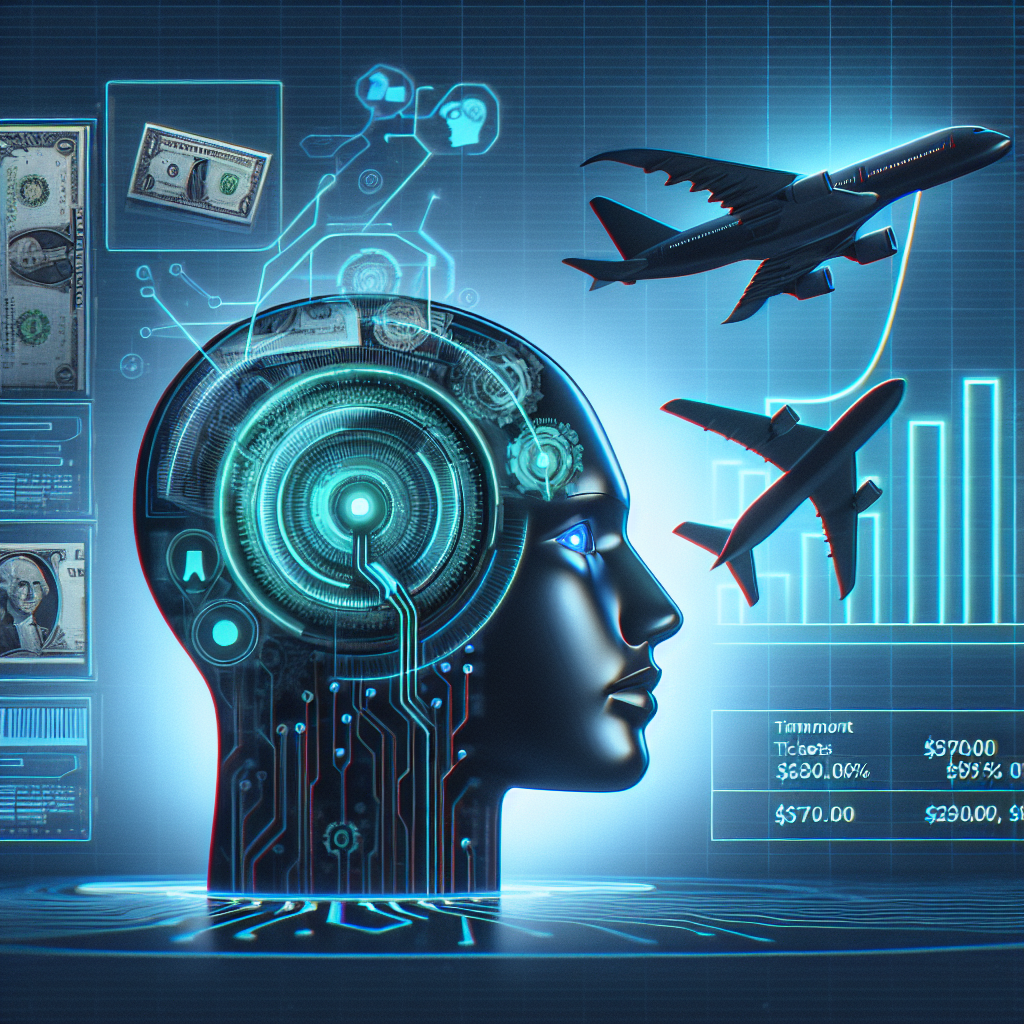
Delta Air Lines is set to revolutionize its fare pricing model by leveraging artificial intelligence, with a bold target that 20% of their ticket prices will be determined by AI by the end of this year. This move comes as part of a broader strategy to optimize pricing based on individual customer willingness to pay, a crucial advancement in the often static and opaque airline fare systems.
Back in the fall, Delta introduced an AI-driven approach to manage approximately 1% of their flight inventory. The airline partnered with the Israeli firm Fetcherr to develop this system, which aims to analyze data to pinpoint the maximum fare each customer is prepared to pay at the precise moment they search for tickets. This represents a significant shift in how airlines can respond to market dynamics and customer behavior.
Delta’s President, Glen Hauenstein, highlighted this innovation at their recent Investor Day, emphasizing the capabilities of AI as akin to having a ‘super analyst’ who tirelessly analyzes and suggests optimal pricing strategies around the clock. The intention is to simulate real-time pricing that aligns closely with customer demand and preferences.
This overhaul in pricing strategy is not merely a technical upgrade; it signifies a fundamental change in how Delta approaches fare pricing in the future. By attempting to understand the ‘mind’ of their consumers, the airline aims to present relevant fare options at the right times with optimal pricing. This AI implementation is envisioned as a gradual process involving extensive testing and refinement over the next 18-24 months.
As of now, Delta has ramped up its AI pricing to impact about 3% of its domestic fares, a substantial increase from their initial rollout. Hauenstein confirmed the airline’s ambitious goal of achieving 20% AI-influenced pricing by year-end, although they remain in an ongoing testing phase to ensure the system’s reliability and success.
The shift towards AI-driven pricing methodologies has broader implications for the airline industry. While personalized pricing is not a new concept, Delta’s approach transcends previous models that typically offered discounts selectively to certain customers or loyalty program members. Instead, this system promises a more individualized fare structure based on a comprehensive understanding of the consumer base.
Looking ahead, if Delta’s strategy proves successful, it could potentially prompt other airlines to adopt similar AI-driven pricing strategies as the industry seeks to enhance revenue through personalized customer experiences. Loyalty programs may also evolve to incorporate aspects of this pricing regime, linking customer benefits directly to their participation in these AI-driven pricing models.
Furthermore, the implications of such a shift extend beyond just revenue optimization for the airline. It raises questions about the nature of consumer choice and pricing transparency. By implementing dynamic pricing strategies based on individual willingness to pay, airlines may simultaneously improve their profitability while also delivering a more tailored service to their customers.
This advancement in fare pricing can lead to competitive advantages, especially in a market where differentiation and customer loyalty are critical. The ability to analyze data and adjust pricing in real-time can enable airlines to make more informed decisions, potentially enhancing customer satisfaction and retention.
While there are still uncertainties surrounding how effectively these AI models will perform in real-world scenarios, the initial feedback from Delta indicates a strong optimism about the technology’s capabilities. The more data the AI systems are exposed to, the better they can learn and adapt, ultimately creating a more efficient pricing mechanism.
In conclusion, Delta Air Lines is positioning itself at the forefront of an AI-driven evolution in the airline industry. With plans to implement AI pricing on a larger scale, the airline not only hopes to increase its profitability but also reshape the way consumers engage with air travel pricing.

Leave a Reply